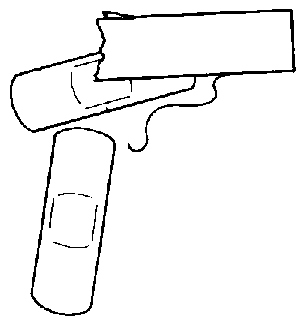

Week 1:Introduction to Medical Anthropology
Reading Assignments:
1. Dancing Skeletons. Read the whole book.
2. Helman: Chapter 1: Introduction: the scope of medical
anthropology. (Pp. 1-10)
Week 2-3: Disease Theories as Cultural Products
WEEK 2:
Topics
Disease as Cultural Products
Cultural systems`as determinants of sickness and healing
Explanatory Models
Political/ Economic theories
Interactionst position
Reading Assignment
1.Helman:
Chapter 5: Doctor-Patient Interactions. (Pp. 101-145)
Chapter 7: Pain and Culture. (Pp. 179-193)
Chapter 2: Cultural definitions of Anatomy and Physiology .
(Pp. 12-36)
WEEK 3:
Topics
Biomedical Model: Basic Principles
Ecological Perspective
Human Adaptation Model
Reading Assignment
1. Evans, R. G. et al. 1994 Why are Some People Healthy
and Others Not?:
a. Introduction. R.G. Evans (pp. 3-26).
b. Producing Health, Consuming health Care. R.Evans and G. Stoddart.
(Pp27-66).
Week 4-5: Health and Disease in Human Evolution
Topics
Human evolution and disease
Human Adaptation to disease
Natural Selection and Disease
Epidemiological Transition Theory
Reading Assignments
Weeks 5-7: Current Problems and Issues-Who Becomes Sick,
Injured or Dies?
WEEK 5-6:
Topics
Epidemiological Transition Theory
If not genetics what else?
The influence of ethnicity, class and gender
Degenerative diseases: CHD, Diabetes
Reading Assignments
1. Cooper, R. S. 1991 Celebrate diversity - or should we?
Ethnicity and Disease. 1 (1): 3-7.
2. Kumanyika, S. and P. Golden 1991 Cross-sectional difference in
health status in US racial/ethni
minority groups:Potential influence of temporal changes, disease and
lifestyle transitions.
Ethnicity and Disease 1(1):50-59.
3. Barker, J. 1992 Cultural Diversity - Changing the Context of
Medical Practice. West. J. Med.
157: 248-254.
4. Crews, D.E. and G.D. James. 1991 Human evolution and the genetic
epidemiology of chronic
degenerative diseases. In Applications of Biological
Anthropology To Human Affairs. Pp. 185-206.
C.G.N. Mascie-Taylor and G.W. Lasker (eds). Cambridge University
Press: Cambridge, UK.
5. Helman, C. Culture, health and Illness.
a. Chapter 12. Cultural factors in Epidemiology. (Pp
267-249).
WEEK 7:
Topics
Women's health, sickness and illness
Medicalization of the reproductive cycle
Menstruation, Pregnancy, Birth, Menopause
Stress and Culture Change
Reading Assignments
WEEK 8:
Helman, C. Culture, Health and Illness.
Week 9-10: Healing Systems
Topics:
Healing systems
Seeking health and help
Reading Assignments:
1. Helman, C. Culture, health and Illness.
a. Chapter 4. Caring, and Curing: Sectors of Health Care (pp
54-85).
b. Chapter 9: Ritual and the management of Misfortune (pp. 192
-213)
c. Chapter 10: Cross-cultural Psychiatry (pp214-248).
Tentative Exam and Due Date Schedule:
Topic Deadline: Jan 22, 1998
Outline & Preliminary Bibliography: Feb 3, 1998
Draft for Evaluation and Comment: Feb 12, 1998 (Optional and Recommended)
Final Submission: Feb. 24, 1998
Take Home Exam or Wed. March 18, 1998 10:15-12:15
HOME